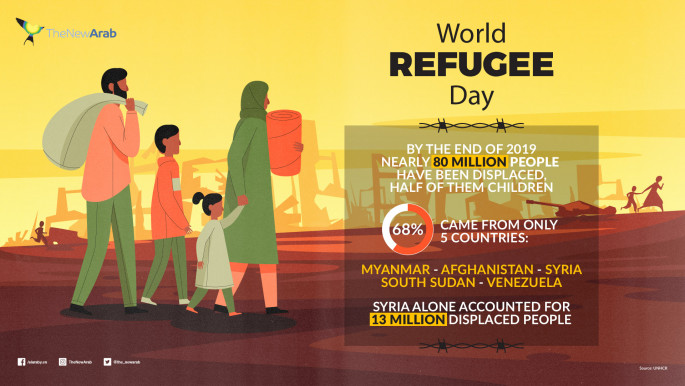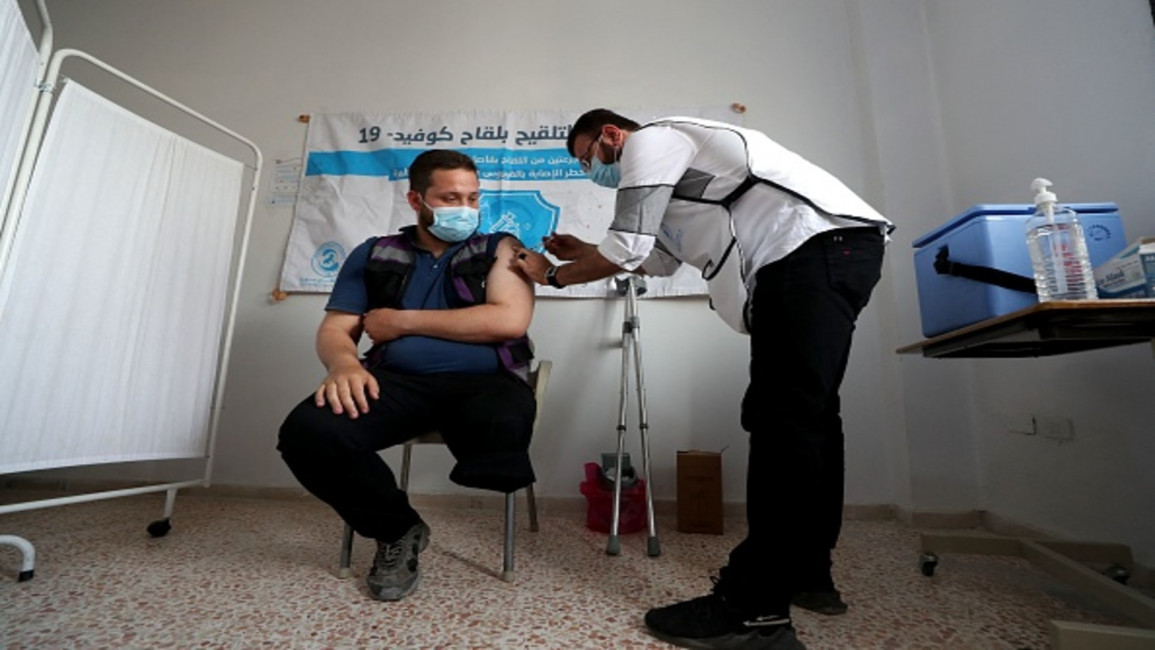Policies of exclusion leaving 46 million displaced, marginalised people without Covid vaccines: WHO
At least 46 million asylum seekers, migrants, refugees and internally displaced people around the world have been excluded from Covid-19 vaccination programmes, according to World Health Organization (WHO), and may struggle to get the jab even if a global shortage of doses eases.
Among those excluded are thousands of Syrian refugees, as well as people displaced by decades of conflict in Colombia, Kenya and Nigeria, according to a WHO report cited by The Guardian on Friday.
Nearly 5 million migrants in Ukraine also face barriers to accessing the vaccines, while India, Nigeria and Indonesia have excluded displaced people from national vaccination policies. In Syria, the WHO estimates 590,000 vulnerable people are at risk of never receiving the first shot.
These policies of exclusion mean a population roughly the size of Spain will struggle to get vaccinated.
Syria received 256,800 doses of the COVID-19 vaccine last month, the first COVAX delivery to reach the war-torn country.
Since March 3, COVAX – a global collaboration to accelerate development, production, and equitable access to COVID-19 diagnostics – has delivered more than 5 million doses to the Middle East and North Africa. Inoculation through the program so far reached 18 countries including Iran, Iraq, Lebanon, the State of Palestine, Sudan and Yemen, among other conflict-affected and fragile countries.
Read also: Coronavirus vaccine campaign begins amid virus surge in rebel-held Syria
International organisations behind COVAX in March allocated a quota for the most vulnerable people in communities with no other pathway to a jab.
This “humanitarian buffer” will redirect 5 percent of the total number of jabs allocated to poor and lower-middle income countries through COVAX to the most vulnerable 20 percent of the population. Medical NGOs working with marginalised communities will be implementing the vaccinations among these groups.
COVAX promoters, including the WHO, the Global Vaccine Alliance (Gavi) and the Coalition for Epidemic Preparedness Innovations (Cepi), with the UN children's fund, UNICEF, as key implementation partner, are hopeful this additional measure will ensure the vaccination of about 33 million marginalised people.
Nadia Hardman, a researcher in refugee and migrant rights at Human Rights Watch, told the Guardian that 1.5 million Syrian refugees in Lebanon – around a third of its total population – have seen “extremely low take-up rates” due to the “unwillingness by authorities to put forward the kinds of promises and assurances and mechanisms to get refugees and vulnerable groups to vaccination centres.”
Health experts have argued that excluding segments of society from vaccination plans is a self-defeating strategy. “We are not safe until everyone is safe”, WHO, UNICEF and Gavi said in a joint statement.
Ghana was the first country to receive COVAX vaccines in February. Tens of millions of doses have been shipped across six continents since and experts hope to distribute two billion doses by the end of the year.
Follow us on Facebook, Twitter and Instagram to stay connected



